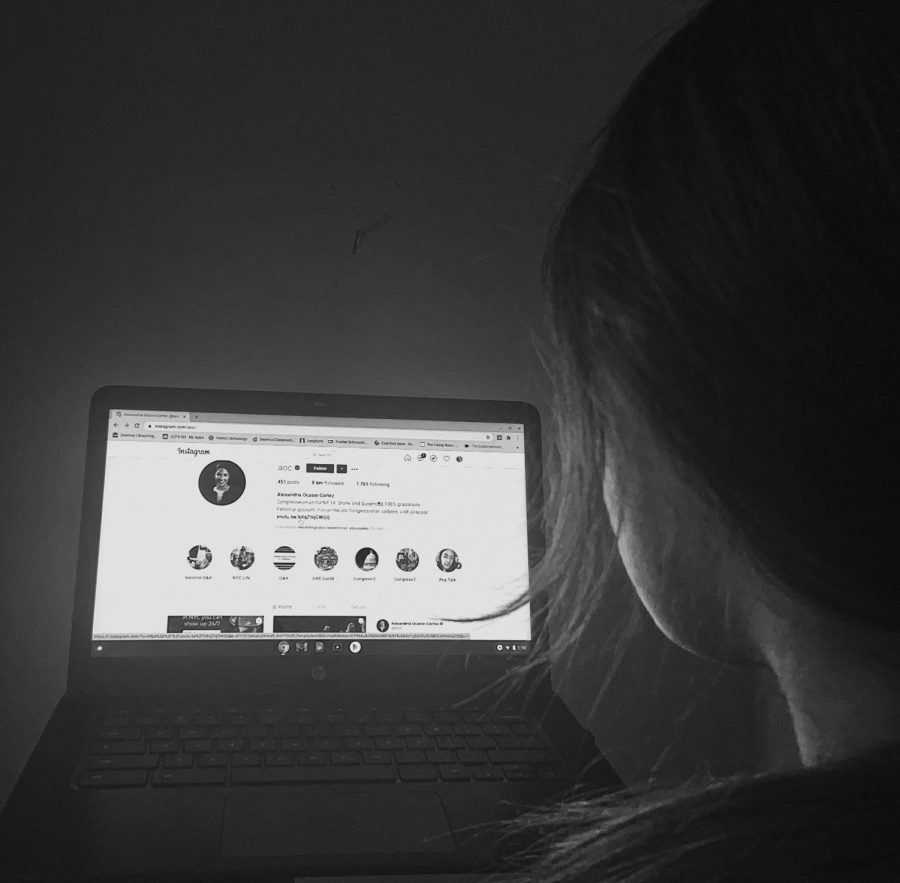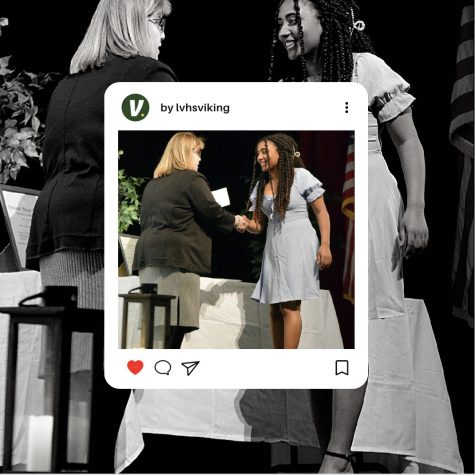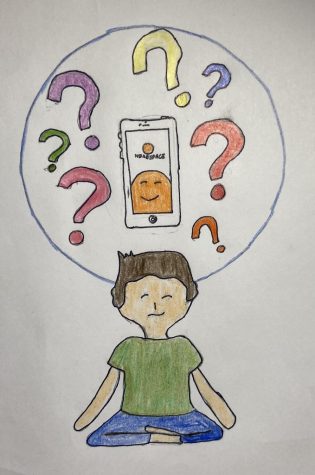The Idolization of Politicians on Social Media
February 11, 2021
While large-group gatherings are no longer permissible, technology has come to the rescue in politics. Politicians are exploring the internet to find safe ways to campaign and spread their policies. Social media has played a large role in online campaigning, with some politicians starting to use streaming platforms to spread their messages.
President Barack Obama was the first president to use social media, granting him the title of “First Social Media president.” He first appeared on the internet in 2008, when social media was gaining popularity, by tweeting on the @POTUS Twitter handle and developing several other accounts on platforms such as Instagram, Snapchat and Facebook. He used these new mediums to communicate directly with the public.
Social media use in politics has since skyrocketed, causing politicians to expand their social media accounts. Many use Instagram, Twitter, Facebook and YouTube to reach larger crowds.
Although these apps are effective at communicating with the public, they were not enough for full-fledged campaigning, so politicians turned to online streaming to reach more supporters.
During the 2020 election, Dacast found that 82% of viewers prefer seeing a livestream rather than a social media post. Streaming is a form of social media that allows one to broadcast and record simultaneously while also receiving comments from viewers.
One such platform is Hovercast. Hovercast is an interactive live-streaming program that allows users to collaborate with fundraising programs. Hovercast was first used by Sen. Bernie Sanders (D-N.H.) during a rally in New Hampshire, an event that guest-starred Rep. Alexandria Ocasio-Cortez (D-N.Y.). The event was a success because it helped raise money for Sanders’ campaign while also enabling him to interact with his supporters.
Sanders isn’t alone in the use of streaming to campaign. Ocasio-Cortez used Twitch to encourage young Americans to vote in the 2020 presidential election. Her Twitch stream, featuring her playing the online space-themed multiplayer game Among Us, was a huge success, bringing her over 430,000 viewers. She played for three hours with celebrities, gamers and even fellow politician Rep. Ilhan Omar (D-Mich.). Ocasio-Cortez’s livestream ended up being highly effective at reaching out to young Americans, since 55% of all Twitch users are 18- to 35-years old. Ocasio-Cortez uses Instagram Live more frequently than Twitch, for it allows her to answer questions in real time.
Conducting livestreams and having a social media presence are beneficial for the purpose of campaigning due to their expansive outreach. According to the American Bar Association, a political presence on social media makes campaigns 100- 200 times more effective.
However, while effective, social media also provides an opportunity for fans to idolize politicians. Idolization of any politician portrays them as unreal, when in reality they are human and make mistakes just like everyone else. Their perfect image may cause their mistakes and wrongdoings to be ignored or cast aside. This is dangerous because it skews Americans’ views of politicians.
Vice President Kamala Harris has a group of super fans on Twitter naming themselves the #KHive, inspired by Beyonce’s fan base called the #Beyhive. The hashtag began trending in 2017 and has continued to trend throughout the recent election. The KHive is a model example of political idolization, with about 50,000 to 60,000 accounts on Twitter dedicated to supporting Harris.
In 1990, Harris became a prosecutor for California and was involved in a wave of tough-on-crime political culture. This influx of tough-on-crime laws caused prison capacity from 1977 to 2006 to jump from 20,000 to over 166,000 inmates. She was also critized for working to uphold the death penalty in California, despite personally opposing the law.
When an article was posted on Twitter claiming Harris was not a “progressive prosecutor,” the KHive dismissed the claim in the comments, writing “blocked” or “untrue news.”
Former president Donald Trump was also often idolized because of his presence on social media. His followers rally behind him on social media despite possibly being uninformed. This is known as a herd mentality, which can cause people to join trends or change behaviors to conform to a social standard. After the 2020 election, many of Trump’s supporters refused to believe that Trump lost, despite Biden being sworn into office on Jan.20. In a field survey done by Vox, 72% of Republicans say they continue to question the election results. It’s not just Donald Trump though. The same herd mentality is seen with Barack Obama, Alexandria Ocasio-Cortez, Joe Biden or any politician with a strong presence on social media.
With technology at the forefront this year, it is important to use it to connect, but also to be aware of the potential threats it poses. Idolization is common and hard to notice when you are following the crowd. A good way to refrain from idolization is to research politicians before deciding to support them and to make sure politicians’ media attention doesn’t sway our perceptions or our support for a specific candidate.












